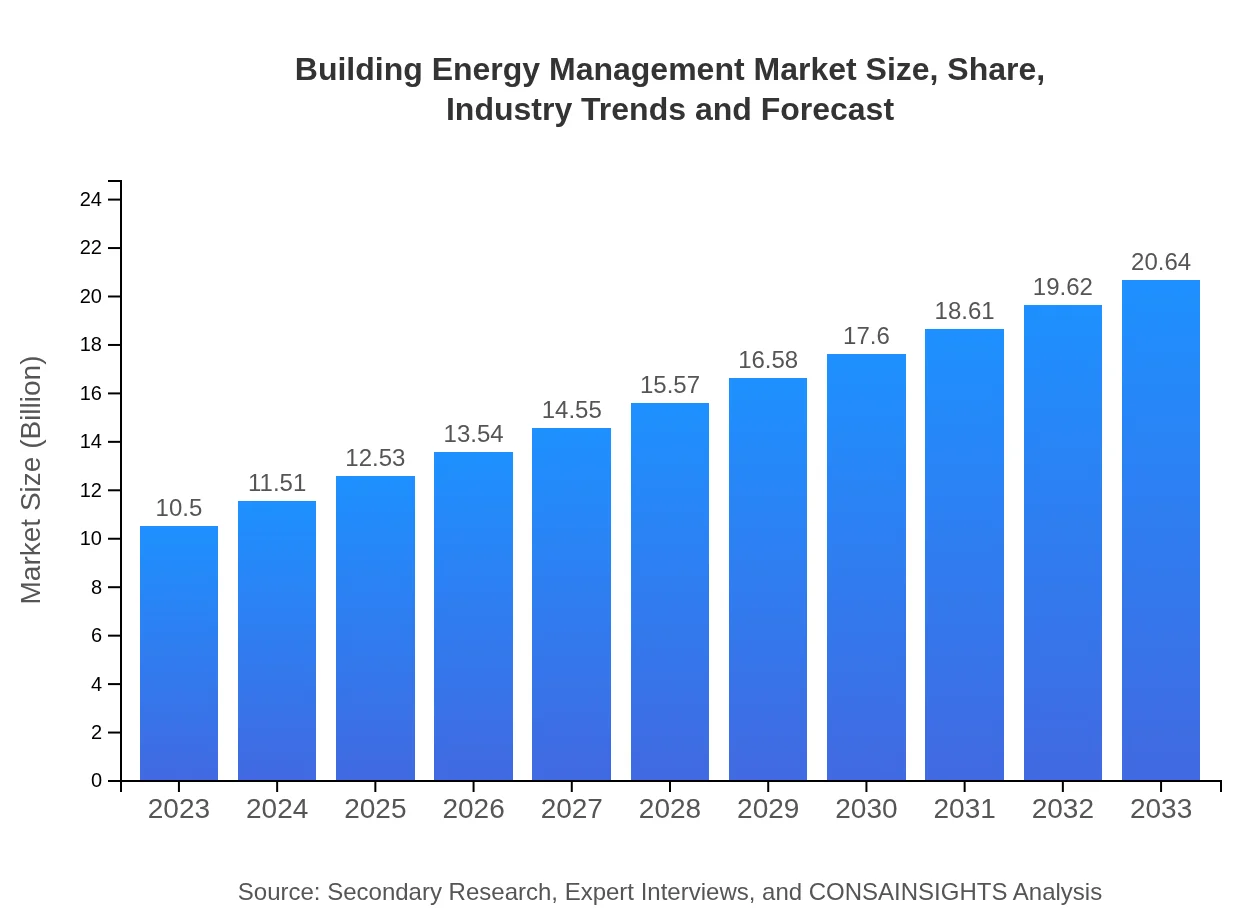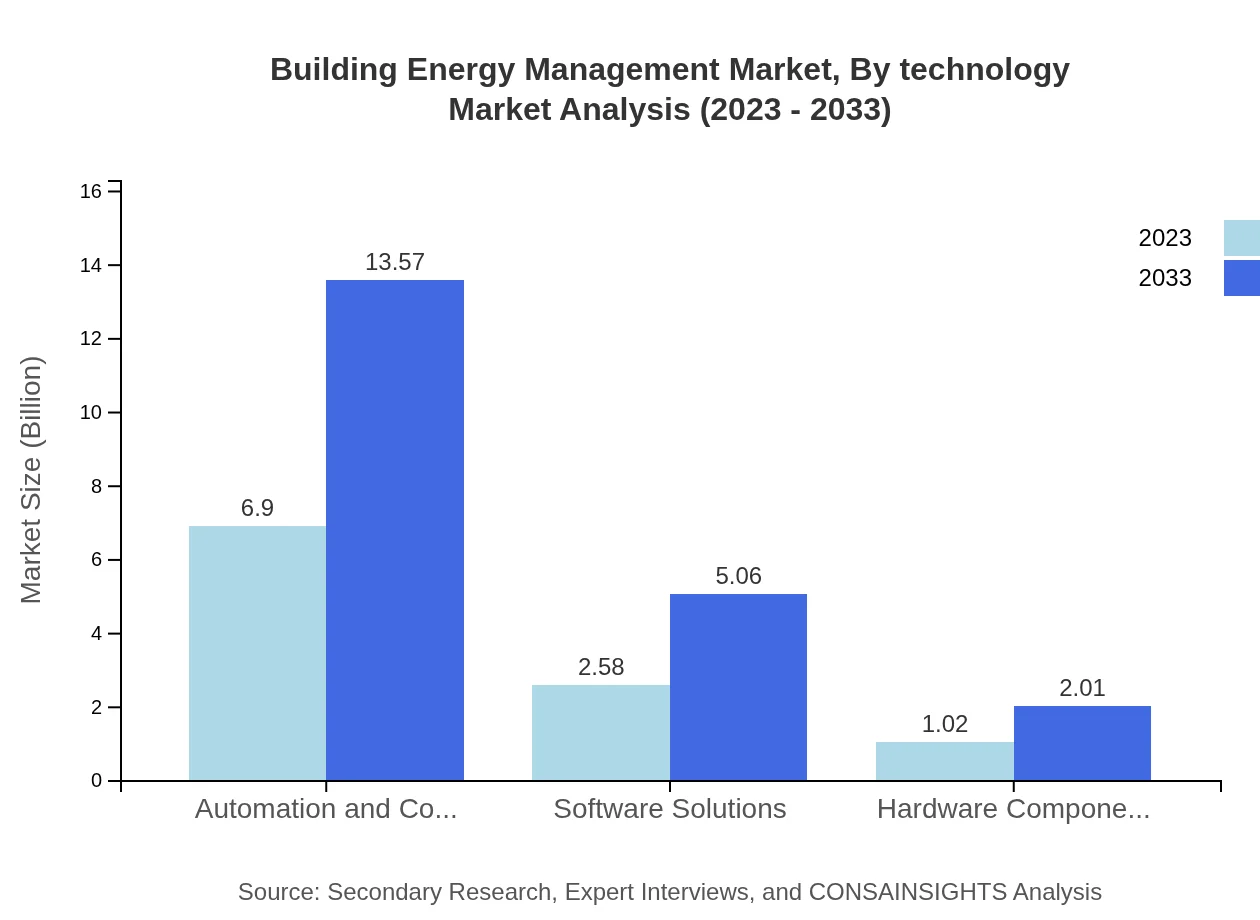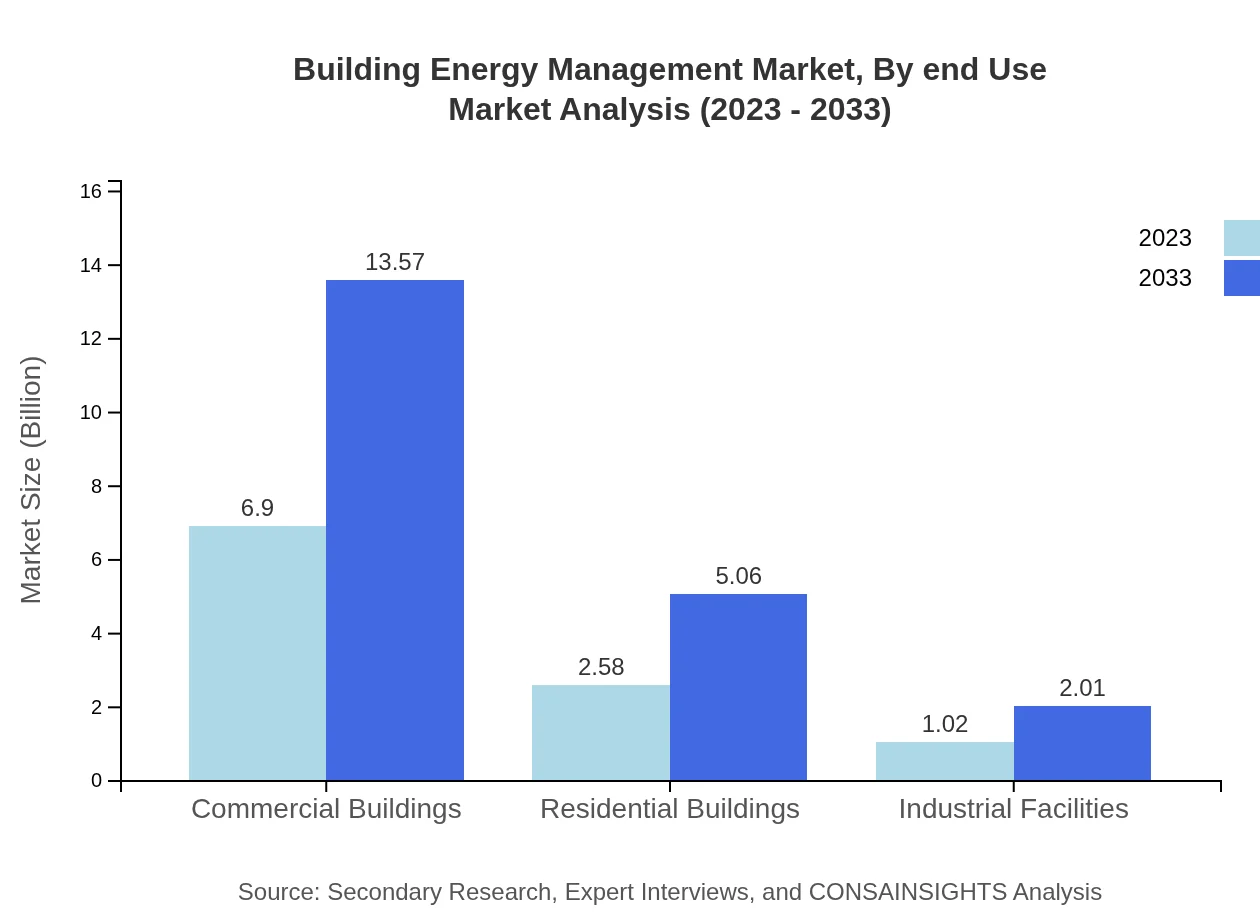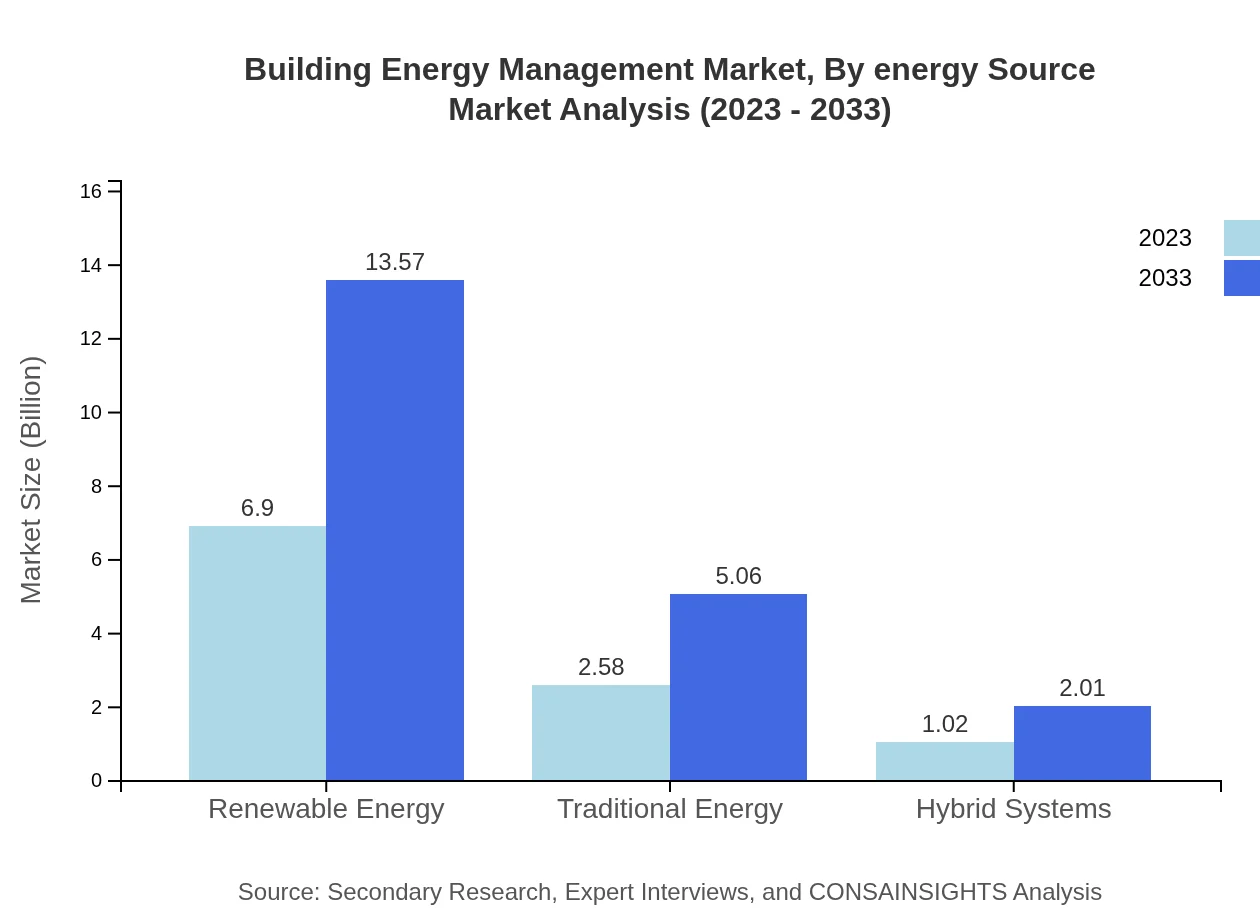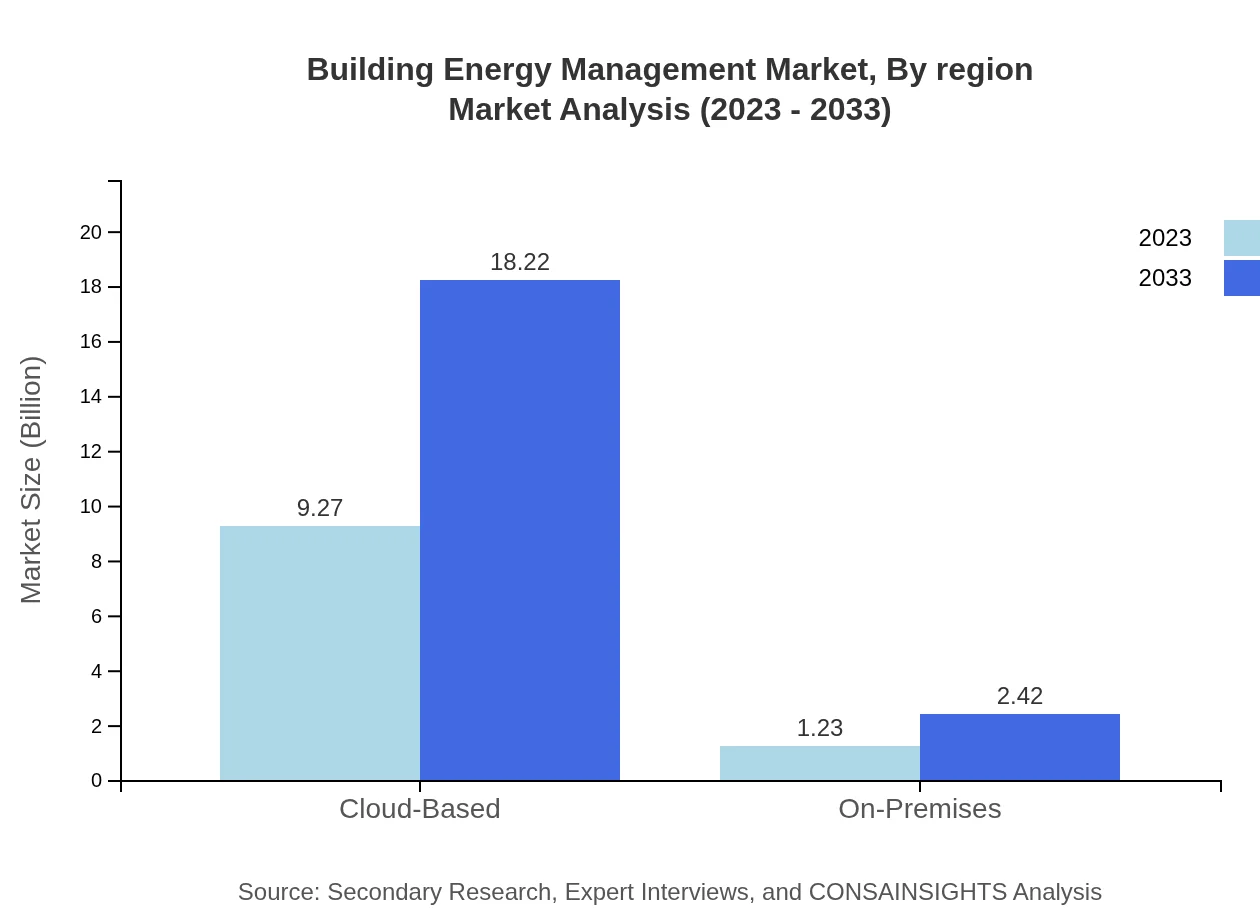Building Energy Management Market Report
Published Date: 22 January 2026 | Report Code: building-energy-management
Building Energy Management Market Size, Share, Industry Trends and Forecast to 2033
This report provides an in-depth analysis of the Building Energy Management (BEM) market, covering growth projections, size estimates, and trends from 2023 to 2033, along with a regional breakdown and insights into key industry players.
| Metric | Value |
|---|---|
| Study Period | 2023 - 2033 |
| 2023 Market Size | $10.50 Billion |
| CAGR (2023-2033) | 6.8% |
| 2033 Market Size | $20.64 Billion |
| Top Companies | Johnson Controls, Siemens AG, Honeywell , Schneider Electric, ABB Group |
| Last Modified Date | 22 January 2026 |
Building Energy Management Market Overview
Customize Building Energy Management Market Report market research report
- ✔ Get in-depth analysis of Building Energy Management market size, growth, and forecasts.
- ✔ Understand Building Energy Management's regional dynamics and industry-specific trends.
- ✔ Identify potential applications, end-user demand, and growth segments in Building Energy Management
What is the Market Size & CAGR of Building Energy Management market in 2023?
Building Energy Management Industry Analysis
Building Energy Management Market Segmentation and Scope
Tell us your focus area and get a customized research report.
Building Energy Management Market Analysis Report by Region
Europe Building Energy Management Market Report:
Europe's market size is anticipated to increase from $2.70 billion in 2023 to $5.31 billion in 2033, propelled by ambitious EU energy efficiency targets and widespread governmental support for green buildings. The region is a leader in adopting energy management technologies.Asia Pacific Building Energy Management Market Report:
In the Asia Pacific region, the Building Energy Management market is forecasted to grow from $2.17 billion in 2023 to $4.27 billion by 2033, driven by rapid urbanization and government initiatives promoting smart cities. Key markets include China, Japan, and India, where energy efficiency is becoming a top priority.North America Building Energy Management Market Report:
The North American market is significant, projected to grow from $3.60 billion in 2023 to $7.08 billion in 2033. The US and Canada are leading the charge, with stringent energy regulations and enhanced focus on sustainability driving adoption in the commercial sector.South America Building Energy Management Market Report:
South America’s Building Energy Management market is expected to expand from $0.57 billion in 2023 to $1.12 billion in 2033, as businesses increasingly recognize the importance of energy management systems to cut costs amid rising energy prices and regulatory requirements.Middle East & Africa Building Energy Management Market Report:
The Middle East and Africa region is poised to see growth from $1.46 billion in 2023 to $2.87 billion by 2033, as countries in the region strive for energy diversification and greater sustainability in building practices, driven by both economic and environmental factors.Tell us your focus area and get a customized research report.
Building Energy Management Market Analysis By Technology
In the technology segment, cloud-based solutions dominate with a market size projected to grow from $9.27 billion in 2023 to $18.22 billion in 2033, accounting for 88.28% of the overall market share. On-premises solutions hold a smaller share but are expected to rise from $1.23 billion in 2023 to $2.42 billion by 2033.
Building Energy Management Market Analysis By End Use
Commercial buildings represent the largest end-use segment, expected to increase from $6.90 billion in 2023 to $13.57 billion in 2033. Residential buildings are witnessing growth as well, projected to reach $5.06 billion by 2033 from $2.58 billion in 2023.
Building Energy Management Market Analysis By Energy Source
Renewable energy is increasingly becoming significant, projected to grow from $6.90 billion in 2023 to $13.57 billion by 2033. Traditional energy sources will also maintain stability, growing moderately from $2.58 billion to $5.06 billion during the same period.
Building Energy Management Market Analysis By Region
Overall, North America and Europe are at the forefront of the market, but significant growth is anticipated in Asia Pacific and South America due to emerging economies and investment in energy efficiency technologies.
Building Energy Management Market Trends and Future Forecast
Tell us your focus area and get a customized research report.
Global Market Leaders and Top Companies in Building Energy Management Industry
Johnson Controls:
A global leader in energy management, providing innovative solutions for building automation and performance optimization.Siemens AG:
Siemens offers comprehensive portfolio of building management technologies and services, focusing on energy efficiency and environmental sustainability.Honeywell :
Specializes in advanced building management systems that improve energy efficiency and operational performance.Schneider Electric:
Provides energy management and automation solutions, optimizing building performance and reducing energy consumption.ABB Group:
Delivers a wide range of automation solutions and technologies to enhance energy efficiency in buildings.We're grateful to work with incredible clients.









FAQs
What is the market size of building Energy Management?
The global Building Energy Management market was valued at approximately $10.5 billion in 2023, with a projected CAGR of 6.8% from 2023 to 2033, indicating significant growth opportunities in the upcoming years.
What are the key market players or companies in this building Energy Management industry?
Key players in the building energy management industry include companies such as Siemens AG, Schneider Electric, Honeywell International Inc., Johnson Controls International plc, and ABB Ltd., who are renowned for their innovative solutions and extensive market reach.
What are the primary factors driving the growth in the building Energy Management industry?
Growth drivers for the building energy management industry include increasing energy costs, stringent government regulations on energy efficiency, advancements in IoT technology, and growing awareness of sustainable practices among consumers and businesses alike.
Which region is the fastest Growing in the building Energy Management?
The fastest-growing region in the building energy management market is North America, with a market size increasing from $3.60 billion in 2023 to $7.08 billion by 2033, highlighting a robust demand for energy efficiency solutions.
Does ConsaInsights provide customized market report data for the building Energy Management industry?
Yes, ConsaInsights offers customized market report data tailored to the building energy management sector, allowing businesses to leverage specific insights for strategic decision-making and market positioning.
What deliverables can I expect from this building Energy Management market research project?
Deliverables from a building energy management market research project include comprehensive reports, market segmentation analysis, competitive landscape evaluations, forecast trends, and actionable insights tailored to specific client needs.
What are the market trends of building Energy Management?
Current trends in the building energy management market include the rise of cloud-based solutions, integration of AI and machine learning for predictive analytics, and an increasing shift towards renewable energy resources, promoting sustainability in energy utilization.

